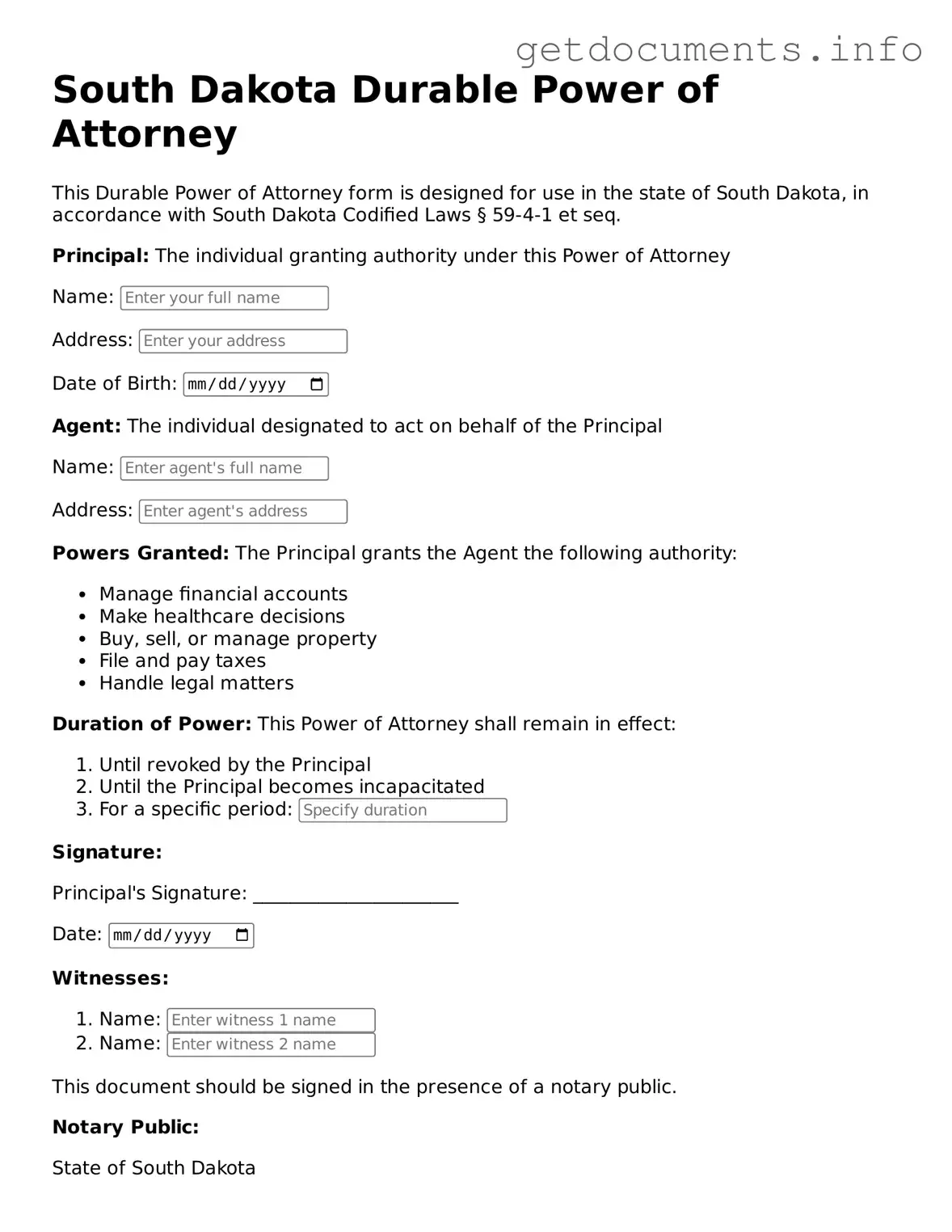Free Durable Power of Attorney Template for South Dakota
A South Dakota Durable Power of Attorney form is a legal document that allows an individual to appoint someone else to make financial and legal decisions on their behalf, even if they become incapacitated. This form is essential for ensuring that your wishes are respected and that your affairs are managed according to your preferences. By preparing this document, you can secure peace of mind for yourself and your loved ones.
Take the first step in protecting your interests. Fill out the Durable Power of Attorney form by clicking the button below.
Access Durable Power of Attorney Editor

Free Durable Power of Attorney Template for South Dakota
Access Durable Power of Attorney Editor
Got places to be? Complete the form fast
Fill out Durable Power of Attorney online and avoid printing or scanning.
Access Durable Power of Attorney Editor
or
⇩ PDF File
